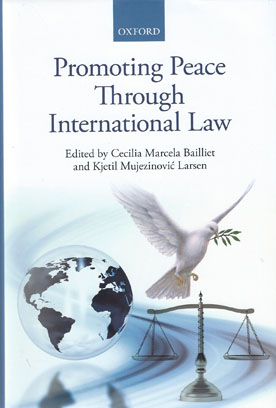
Within international law there is no unified concept of peace. This book addresses this gap by considering the liberal conception of peace within Western philosophy alongside the principle of 'peaceful coexistence' supported in the East. By tracing the evolution of the international law of peace through its historical and philosophical origins, this book investigates whether there is a 'right to peace'.
The book explores how existing international law and institutions contribute to the establishment of peace, or how they fail to do so. It sets out how international law promotes the negative dimension of peace-the absence of structural violence-as well as its positive dimension: the presence of underlying conditions for peace. It also investigates whether international actors and institutions have particular obligations in relation to the establishment and maintenance of peace.
Discussions include: the relationships between the different regimes of human rights, trade, development, the environment, and regulation of arms trade with peace; the role of women, refugees, and other groups seeking equal treatment; the role of peacekeepers, transitional justice mechanisms, international courts fact-finding missions, and national constitutional frameworks in upholding peace in practice; and how civil society participates in the promotion and safeguarding of peace. The book's comprehensive treatment of the concept of peace in international law makes it an ideal reference work for those working in the field, as well as for students.